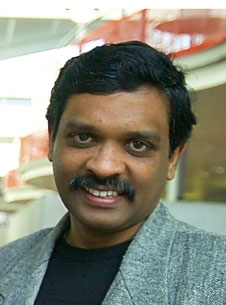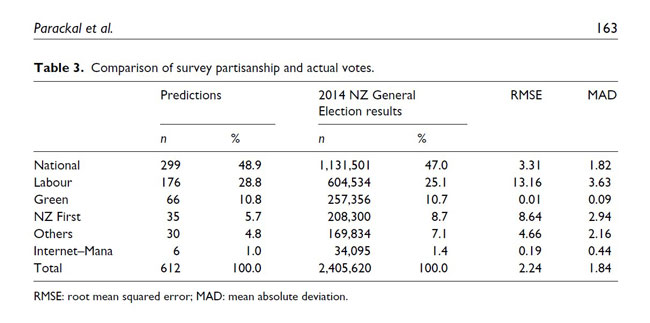 Friday 10 August 2018 2:52pm
Friday 10 August 2018 2:52pm
Dr Mathew Parackal
A new system of predicting election results, developed at The University of Otago, is proving so accurate developers hope it will change future political discussion and journalism.
The value-based method of predicting election results developed by Dr Mathew Parackal, Dr Damien Mather and Dr David Holdsworth – Senior Lecturers at Otago's Department of Marketing – featured recently in The International Journal of Market Research.
Dr Mather says the method offers advantages to traditional polling, which are often merely a point-in-time snapshot of how the various parties are performing.
“Along with more stable political poll predictions, this system provides better insights into how parties address their electorate's values around and leading up to the elections. For example, voters who scored one on a scale ranging from zero to two for the value of respect (e.g. child safety, equality and injustices) were substantially less likely to vote National than any other party (by a factor of over six times)”.
The system was crafted ahead of the 2014 General Election using a sample from a consumer panel involving 858 people.
The methodology used open-ended questions that asked for the issues that mattered in the election to the respondents, and things that made them happy. The responses were analysed using a natural language processing technique to identify the values relevant to the election.
The terms used in the respondents' answers were given a weighting and then organised into groups based on societal value-topics derived from The Laswell and Kaplan Societal Value Framework, named after Harold Laswell and Abraham Kaplan (pioneers of political science and philosophy in the twentieth century).
Regarding the 2014 General Election, the mean absolute deviation (MAD) from the actual vote was 1.8 per cent, much less than the margin of error of 3.5 per cent expected from sampling error alone. The methodology was successful in predicting the outcome for the minor parties with good accuracy, for example, the prediction for the then newly formed Internet-Mana was only out by about 0.5 per cent.

“Our data showed that the Internet Party-Mana Movement party collaboration was tracking to fail. The values attributed to these parties revealed their ideologies would not gel, much like iron and clay,” Dr Parackal says.
“The framing-balanced, value-based predictions exhibited reasonable stability, considering they were made six weeks before Election Day. Thus the values relevant to the voters, and a good prediction of the voting behaviour, became evident ahead of the official campaign period, which started four weeks before Election Day in New Zealand,” adds Dr Mather.
Drs Mather and Parackal believe the value-based prediction method shows promise for improving the quality of political journalism and public engagement in the period of election campaigns. Particularly this methodology will assist in focusing public debate more on values that are influential on citizens' voting decisions. The system could also be used for Local Government Elections.
The University of Otago team behind the methodology hope to put it into further practice in the lead-in to the next General Election, in 2020.
For more information, please contact:
Dr Mathew Parackal
Department of Marketing
University of Otago
Tel 03 479 7696
Email mathew.parackal@otago.ac.nz
Dr Damien Mather
Department of Marketing
University of Otago
Tel 03 479 7694
Email damien.mather@otago.ac.nz
Mark Hathaway
Senior Communications Adviser
University of Otago
Mob 021 279 5016
Email mark.hathaway@otago.ac.nz
A list of Otago experts available for media comment is available elsewhere on this website.
Electronic addresses (including email accounts, instant messaging services, or telephone accounts) published on this page are for the sole purpose of contact with the individuals concerned, in their capacity as officers, employees or students of the University of Otago, or their respective organisation. Publication of any such electronic address is not to be taken as consent to receive unsolicited commercial electronic messages by the address holder.








